LG A1 vs LG B1: which cheap LG OLED TV is best for you?
Which budget LG OLED is best for you in the battle of the LG A1 vs LG B1? We explain all the differences

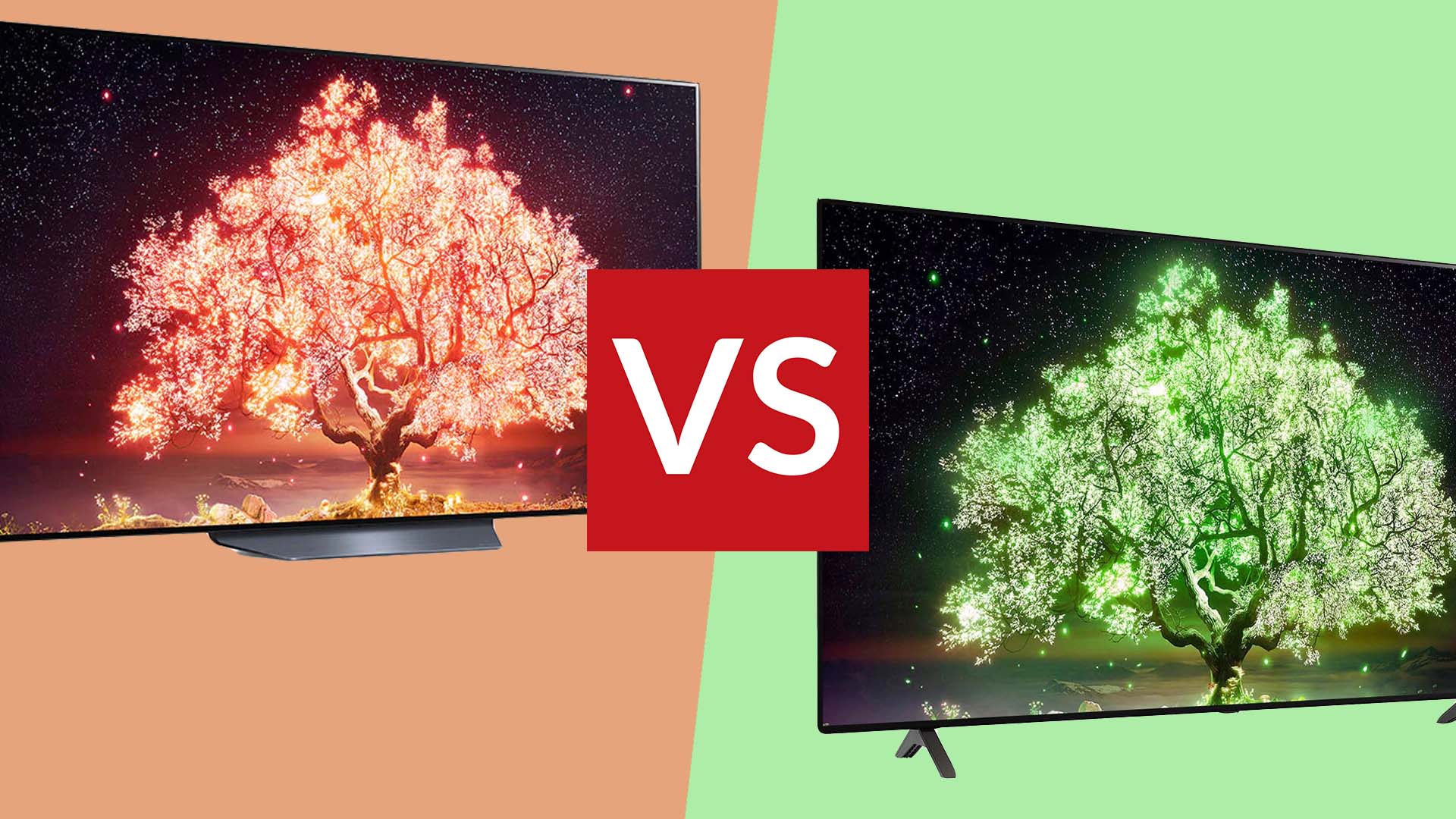
If you're looking for the best LG TV to buy today, it's only natural to be tempted by it's cheap OLED models: the LG A1 and LG B1. With the price coming down rapidly on them, there’s never been a better time to choose one of the best OLED TVs – especially with the best Black Friday deals in full swing, bringing down prices even further.
But you might be wondering what the differences are between the LG A1 and LG B1, because they're extremely similar models, and both offer the rich, inky blacks that make OLED televisions so attractive.
Here we’ll pit the LG A1 against the LG B1 and check out their key stats. We’ll look at how the price stacks up, some key features and design elements, and, importantly, which one you should go for if you’re after the best gaming TV for PS5 or Xbox Series X.
There are some big differences between the two and given that you’re investing a sizable chunk of cash, it’s important to make sure that you get the right OLED TV for you. Read on for a breakdown of the LG A1 vs the LG B1.
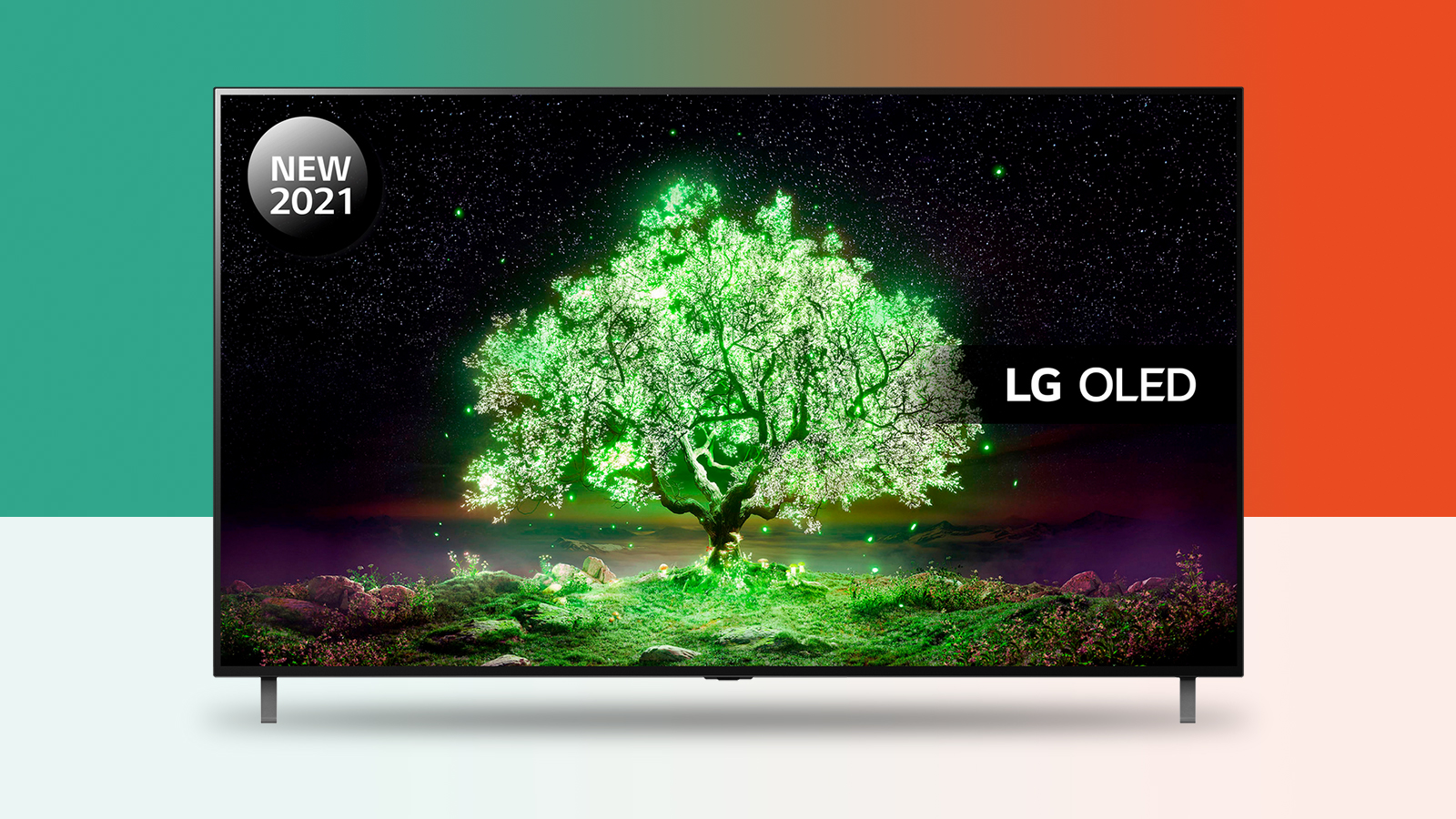
The LG A1 features a simple design, but is still good-looking.
LG A1 vs LG B1: Price and models
Right, let’s get the bank balance affecting stat out of the way first, and we’ll start with LG’s cheapest OLED TV. The LG A1 comes in four different sizes, including a very attractive 48-inch option if you don’t fancy covering an entire wall of a smaller room with a screen. Reductions have already started on the 2021 models but the RRP of the 48-inch option is £999/$1300, the 55-inch model is £1099/$1600, the 65-inch is £1599/$2200, and the 77-inch model is sitting at £2999/$3200.
You can find the latest prices just below, though, because right now you'll be able to pay less than this.
The LG B1 doesn’t have the 48-inch option but it comes in three different sizes. It’s also only available in the UK, as LG US has only released the LG A1 as the budget alternative to the LG C1. In the UK then, before any reductions, the 55-inch LG B1 RRPs at £1199, the 65-inch model is £1799, and the 77-inch version jumps up to £3199.
Get all the latest news, reviews, deals and buying guides on gorgeous tech, home and active products from the T3 experts
Comparing the LG A1 and B1 directly, the differences in the smaller sizes are negligible with a £100 or so difference but if you’re looking for the biggest possible OLED TV, the £1000 difference between the 77-inch models is marked.
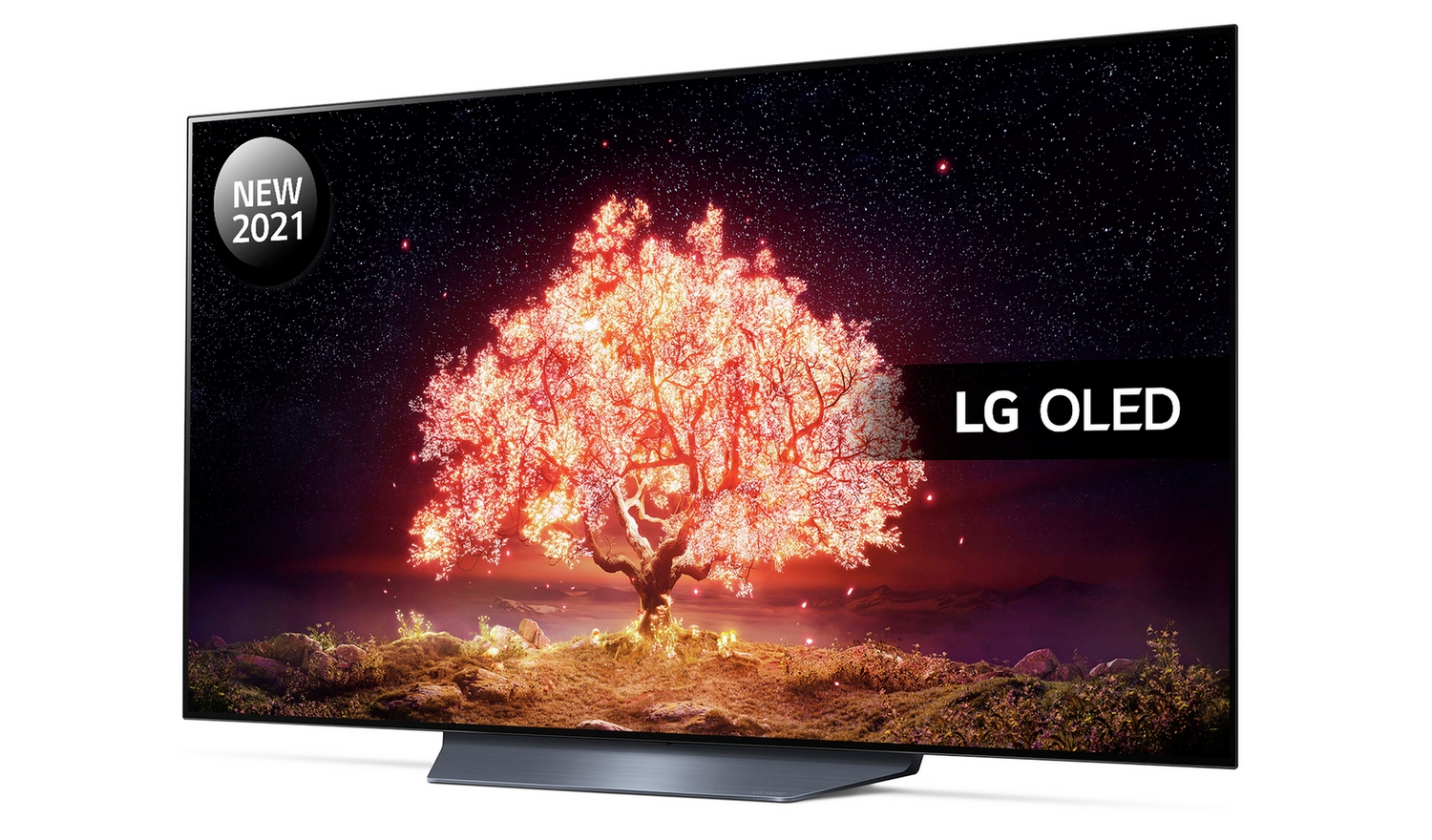
The LG B1 includes a single central foot stand, which is slightly more appealing than the A1's feet.
LG A1 vs LG B1: Picture quality
When it comes to what’s affecting those prices, one of the main differences between the LG A1 and the LG B1 is the panel and HDMI connectivity. The LG A1 only supports a 60Hz refresh rate, while the LG B1 has a 120Hz display which makes it significantly more attractive to those with a new-gen console – especially since the LG B1 also supports HDMI 2.1 for 4K 120Hz input. Both the PS5 and Xbox Series X happily output at 120Hz so if you do want a buttery smooth FPS experience, you’ll want to choose an OLED TV with a faster refresh rate.
That doesn’t mean the A1 should be ruled out, though. If you just want to enjoy Blu-rays or TV with all the richness and intensity that OLED can offer, 60Hz should suit you just fine. Given that a lot of TVs don’t even have HDMI ports that can support 120Hz content, this is something that only the tech hungriest need to worry about. Speaking of tech hungry, if you’re plugging either TV into a PC for gaming, both the LG A1 and the LG B1 have support for FreeSync and G-Sync for smoother frame rates and no screen tear.
In terms of picture processing, both the LG A1 and the LG B1 have LG’s A7 Gen4 Processor. Given that the big steps over the last few years have been in processing technology, the processor does make a big difference. Again though, those just looking for brilliant movie and TV performance should be very happy with the results here, and both the LG A1 and LG B1 have Dolby Vision IQ. This is an intelligent tech that uses sensors to check the light levels in your room and adjusts the brightness accordingly. It’s an especially nice feature to have even in the entry model in the range.
Really, you're looking at the same level of picture quality in most circumstances, but the LG B1 is a better investment for gamers.
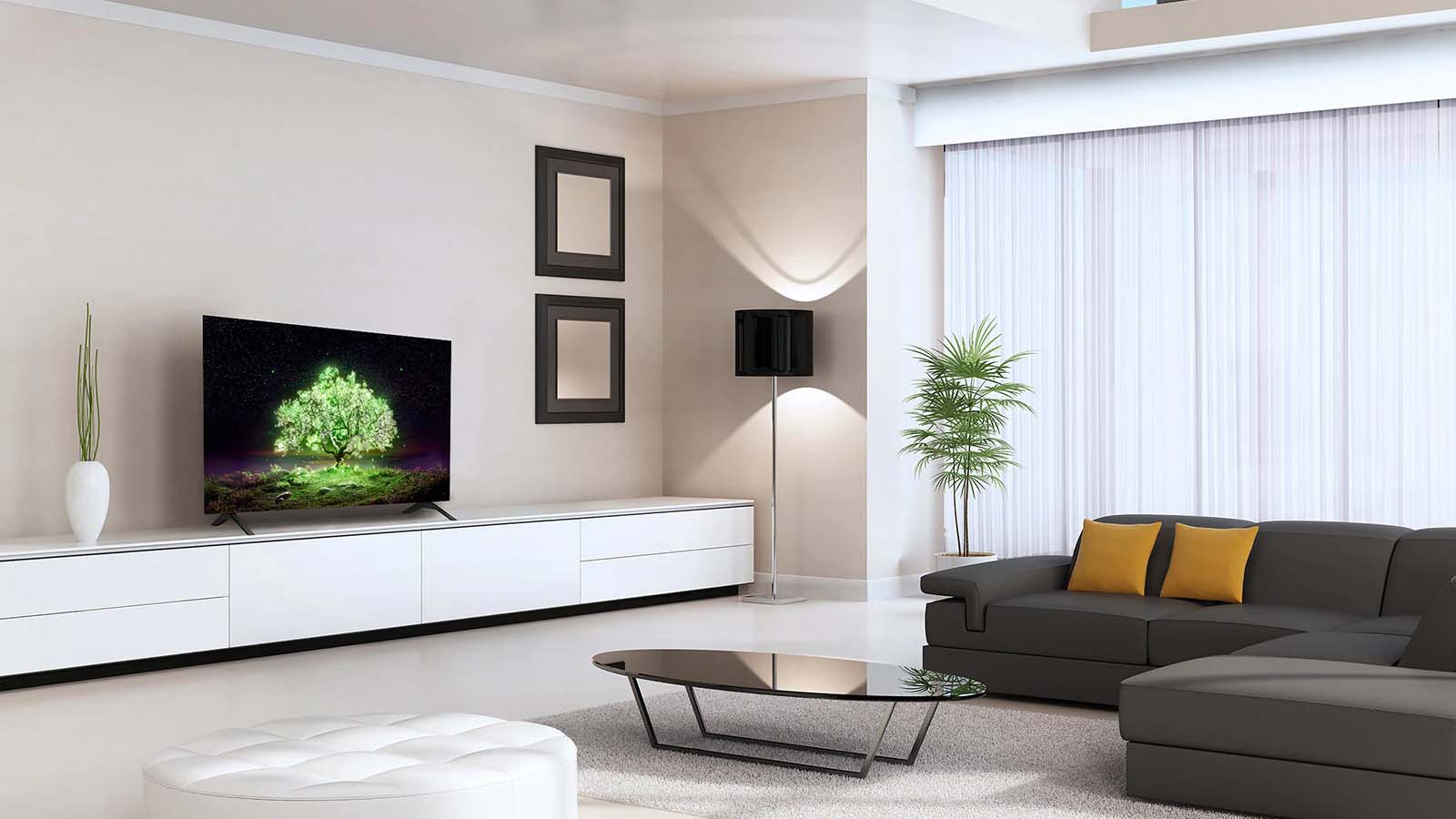
The LG A1 may be cheaper, but it doesn't look it.
LG A1 vs LG B1: Sound quality
The truth is that even in 2021, when it comes to the majority of TV audio, we still need to consider the fact that we need to invest in one of the best soundbars to get the levels of fidelity we truly want. Given that we demand slicker, thinner TVs, there’s very little room for hefty audio equipment built into our sets. Even our favourite LG OLED for most people, the LG C1, has middling audio that we will always want to supplement with a soundbar to fire audio in the direction of the sofa instead of downwards or, even less helpfully, into the wall.
If you’re not planning to buy a soundbar, both the LG A1 and B1 have down firing speakers. The LG B1 matches the 40W output of the C1, while the A1 sticks to 20W. While the audio really demands a soundbar, the built in LG AI Sound Pro features with Clear Voice Pro in both TVs does go a way to increase the levels of speech if you’re struggling to hear the script over music and sound effects. This can sharpen the spoken word but it’s definitely best to make the most of the eARC port that’s available on both sets for your perfect soundbar.
So the B1 has a slight speaker advantage here, but really we think you should be ignoring the built-in speakers in both cases.
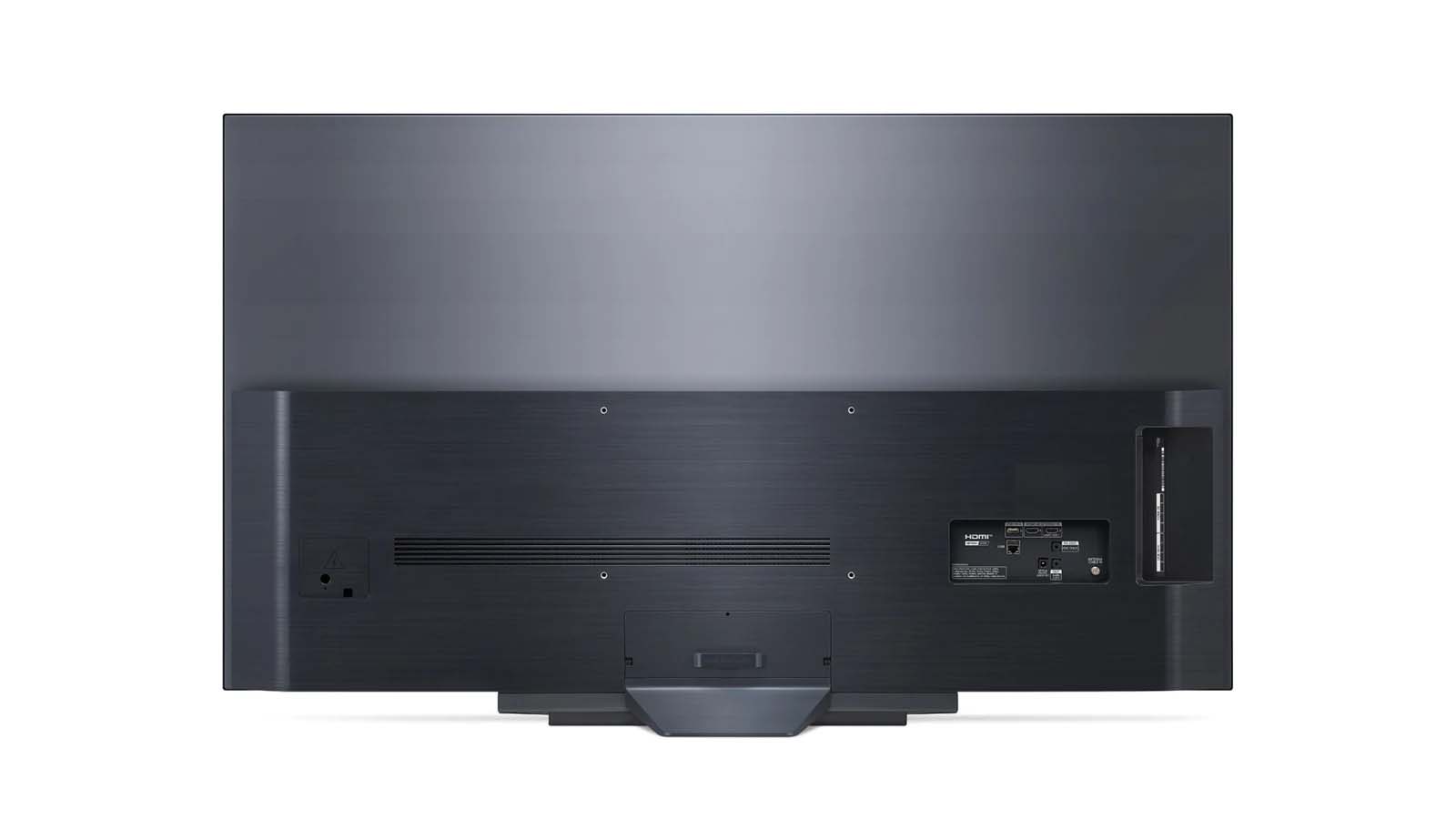
The LG B1's rear.
LG A1 vs LG B1: Design & features
The lovely thing about buying an LG TV in 2021 is that you know it’s going to look beautiful. Both the LG A1 and LG B1 are slick, svelte and seriously slim. The biggest difference between the two is the stand. While the B1 has a central stand, the LG A1 has two feet at either end so you’ll need to make sure that you have a TV stand big enough and that the TV doesn’t hang over the edge. Both screens are obviously wall mountable too though if you don’t want to clog up vital floor space.
Connections wise, the big difference between the LG A1 and the LG B1 is the addition of HDMI 2.1 functionality in the LG B1. Two of the four HDMI ports here are new-gen console friendly with capabilities for 4K gaming, variable refresh rate (VRR), and auto low latency mode (ALLM). The LG A1 on the other hand only has 3 HDMI 2.0 ports which are ideal for regular 4K content but don’t have the functionality desired by new console owners. Three HDMI ports also might feel limited if you have a stack of boxes under your TV and still want room for an eARC soundbar.
The LG A1 and LG B1 both come with LG’s WebOS 6.0 which was released in 2021 to deliver easier access to all your favourite streaming services. All the usual suspects are here when it comes to streaming and there’s direct button access to Netflix, Prime Video, and Disney+ on the Magic Remote that comes with both screens. Generously, there’s also great connectivity on both when it comes to smart integration. Google Assistant and Alexa are both here and the A1 and B1 have AirPlay 2 functionality so you can stream from your Apple tech.
LG A1 vs LG B1: Verdict
The big question here is whether you’re looking for new-gen console features and better refresh rates. The LG B1’s more advanced panel and HDMI 2.1 functionality means that those with a PS5 or Xbox Series X should definitely consider this option over the LG A1. Meanwhile those hungry for movies and TV with less room for budget manoeuvrability and just looking for an excellent OLED TV will find plenty to love about the LG A1. Keep an eye out for reductions as 2021 draws to a close and both TVs have impressive functionality at these price points.
Louise Blain is a journalist and broadcaster specialising in technology, gaming, and entertainment. She has a weekly consumer tech slot on BBC Radio Scotland and is the presenter of BBC Radio 3's monthly Sound of Gaming show. She can also regularly be found on BBC Radio 4, BBC Five Live, and The Evolution of Horror podcast as well as writing for GamesRadar and NME. Louise loves finding ways that tech can make our lives better every day and no, she doesn't have enough smart lighting yet.
